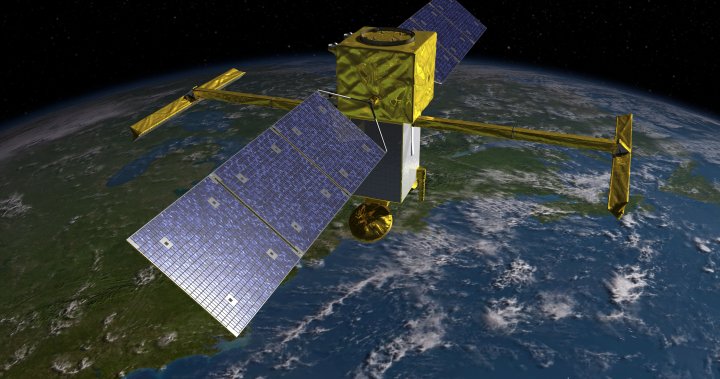A piece of Canadian radar technology will play a key role in a satellite mission to be launched on Friday that aims to survey nearly every water surface on Earth and provide data that will be a boon to Canadian researchers.
The Surface waters and Ocean Topography (SWOT) is led by Nasa and the French space agency – Center National d’Etudes Spatiales – with contributions from the Canadian and British space agencies.
A Canadian component of NASA’s radar will generate microwave pulses used to gather precise water measurements and surface information. The set of high-power extended interaction klystrons, known as EIKs, were built by Ontario-based Communications & Power Industries Canada.
“It’s like a dream factory”: a glimpse of what awaits Canadian space exploration
Read more
Once in orbit, the satellite will survey 90% of Earth’s water surfaces and collect data to help researchers inform policies to improve water management and adapt to climate change. By measuring the height of freshwater bodies and the ocean, the satellite will collect data on how warming affects water and how communities can prepare for floods and droughts.
Guoqi Han, senior scientist at Fisheries and Oceans Canada, said the new satellite will allow researchers to measure currents large and small. Existing satellites, he said, don’t really study small currents, which are important in climate change research and are responsible for more than 50% of heat and carbon transfers between the atmosphere and inside the ocean.
“SWOT will revolutionize our observation of surface ocean currents from space – it will be a game-changer,” Han said during a briefing at the Canadian Space Agency.

Mélanie Trudel, an associate professor in the department of civil and building engineering at the University of Sherbrooke, says SWOT will provide important information about the heights of inland waterways. “SWOT will allow for a level of precision that we don’t have right now,” Trudel said.
One of the roles of SWOT will be to measure the evolution of lakes, rivers, reservoirs and oceans. Canada is home to 62% of the world’s lakes.
Vincent Fortin, of Environment and Climate Change Canada, said access to SWOT data will result in more accurate models to make infrastructure more resilient to climate change.
“These will allow us to refine our models that we use to make climate projections on a global scale but also on a regional scale like in Canada, where we have so many lakes,” Fortin said.
“Hopefully, by improving our models, we can have better products like flood maps that are up to date and current and projections that will be valid for decades to come.”
The data will help Fisheries and Oceans Canada significantly improve its ocean monitoring program, with a better understanding of coastal dynamics, as well as ocean and weather forecasting.
It can also contribute to maritime safety and fisheries management.
Han said, for example, the data can help researchers protect the endangered North Atlantic right whale. By studying ocean currents in the Gulf of St. Lawrence, which impact the distribution of zooplankton _ the whales’ food _, researchers can better understand the animals’ habitat and can advise decision-makers on how to protect whales. animals from collisions with fishing boats.
The satellite is scheduled to launch aboard a SpaceX Falcon 9 rocket from Vandenberg Space Force Base, California, early Friday morning.
This report from The Canadian Press was first published on December 15, 2022.
© 2022 The Canadian Press

“Amateur web enthusiast. Award-winning creator. Extreme music expert. Wannabe analyst. Organizer. Hipster-friendly tv scholar. Twitter guru.”





